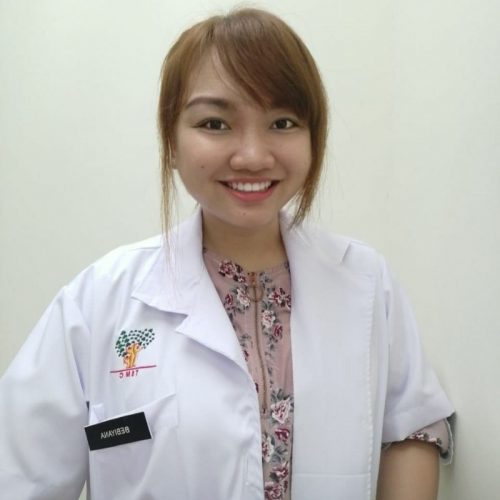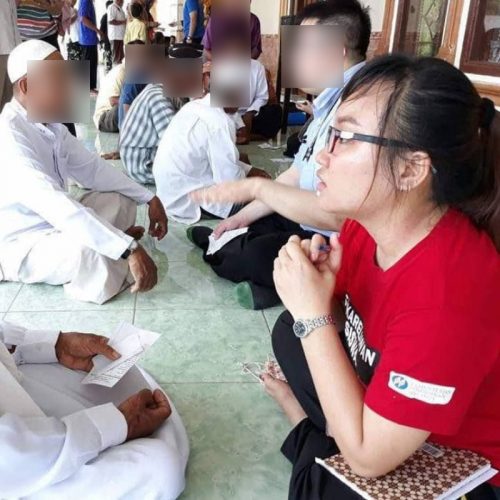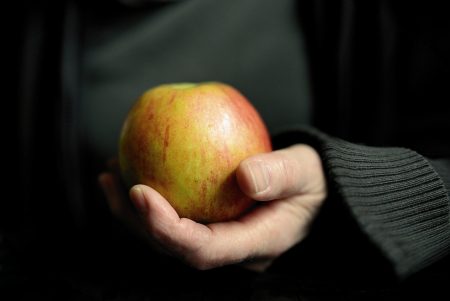If doctors are the brain of the hospital, and nurses are the heart of the hospital, the dietitians must be the stomach! Dietitians are regulated health professionals that assess and treat dietary problems by using the most updated scientific research on food and healthcare. They not only guide people individually, but also at a wider public-health level.
Miss Bebiyana is a young and talented dietitian, graduated with Bachelor of Health Science (Hons) Dietetic from UniversitiSains Malaysia (USM) in 2019.
Q: Can you please introduce yourself?
A: Hello, I am Bebiyana, I am 24 years old,
From Tawau, Sabah. Currently, I am working as Head of Dietetics and Foodservice Department in Tawau Specialist Medical Center.

Q: What made you choose this career?
A: After finishing matriculation, I was researching on my possible career pathways. What attracted me to take dietetic is because of the vast career opportunities available which allow flexibility. Clinical dietitians are trained healthcare personnels that mainly work in clinical settings, however there are many others to choose from if clinical work is not suited for you.
Q: Can you give us some examples of possible careers?
A: Other examples are:
- Foodservice dietitian
- Special products manager (pharmaceutical companies)
- Sports nutrition
- Digital health coach
- Community dietitian
- Researcher
- Health coach
And the list goes on and on!
Q: Who is eligible to apply for this programme?
A: Minimum requirements include
- pass STPM/matriculation/foundation with CGPA 3.00, and
- scoring at least GPA 2.33 for 2 subjects: biology, chemistry, physics/mathematics, and
- MUET band 3, and
- pass the interview, and
- pass general SPM requirement
Q: How was the interview? What were the questions given to you?
A: I actually attended 2 interview sessions for dietetics, in UPM and USM. Both sessions touched most on general knowledge and applicants’ expectation toward the programme. I suggest you read more on what is dietetic, what are the jobscope of a dietitian, how to calculate BMI, and what are the differences between a dietitian and a nutritionist.
Q: Now that you’ve mentioned it, I am actually curious, what are the differences between a dietetic and a nutritionist?
A: Generally, the core of these two programs are almost similar.
Dietitian is usually regulated by government body, and require a bachelor’s degree to obtain the title. We primarily work in medical settings (hospital, clinics…) to provide nutrition interventions for patients.
On the other hand, nutritionist is typically not regulated, but trainings and university programmes are also available for nutrition. They mostly work in commercial settings (companies, fitness centers…) to give nutrition advices and preventative measures for healthy population.

Q: What sets dietetics apart from other programmes?
A: This program incorporates nutrition intervention as a part of patient’s recovery process- it teaches the importance of teamwork among various healthcare personnels. For example, dietitians will not only work with doctors and nurses but we also work with pharmacists, speech therapists and physiotherapists to determine the best therapy and intervention for patients.
Clinical phase was tough because students are exposed to different cases for every rotations and not every patient of the same disease will require the same intervention. We have to consider their financial background, religious and personal preferences as well as their compliance.
Diabetic patient A who is a teacher may require more comprehensive intervention compared to diabetic patient B who is a housewife because we have to consider their time flexibility to comply to our intervention. Being a dietetic student and currently working as a dietitian teaches me a lot about empathy- to see things from others’ point of view.
Q: What are the common nutrition problems among Malaysian?
A: The top 3 that came to my mind are obesity, supplement obsession, childhood malnutrition. These problems are definitely preventable with adequate awareness and education.
Q: Can you share us a memorable experience regarding a day in the life of a dietitian?
A: A patient of mine was admitted because of low blood sugar and she has fainted multiple times at home. Her blood sugar results werehaywired and she was consulted by dietitians multiple times. After some digging, I realised that she did not comply to the advices not because she refused to, but because no one was there to support her. She’s a housewife with busy spouse and children hence she was left alone at home most of the time.
I recall she said, “there’s no use of eating if no one is there with you”. Her words made me realise regardless of how much effort someone put , in my case, dietary advices from a dietitian, familial support is the best therapy. Hence, do spend time with your family!

Q: What is your future planning?
A: I am planning to be an expert in food security especially mother-child nutrition since I want to contribute back to the community, especially B40 communities and rural communities. Awareness regarding the importance of good nutrition and how it impacts an individual for a life time has to be inculcated from the start. Hence mothers play an important role in helping their child to get good nutrition and it starts from early pregnancy. Yes, it starts from before a baby is born.
Q: Do you have any advice for those who are still looking for the right course and career?
A: If you want to choose a study program, do not limit your choice to what you want to do. Do make research on how much will you earn and the fields/profession that you can enter for that particular program. Do some reading on the program structure – is it more to laboratory, clinical, or theoretical knowledge? Get to know your own strength. If you ever needed more insights, seek help and advices from alumni that you are familiar with. And lastly, enjoy your study life to the fullest!
Q: This has been a very informative sharing, thank you so much, and good luck in your career!
A: You’re welcome. I’m happy to be here.
